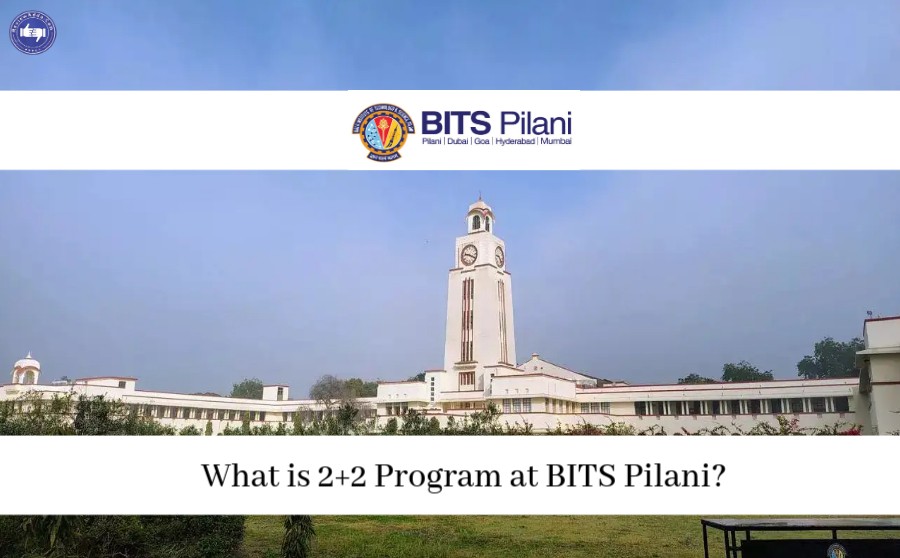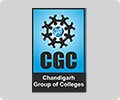What is 2+2 Program at Thapar University?
The 2+2 Program at Thapar Institute of Engineering and Technology (TIET), commonly referred to as the International Engineering Program (IEP), is a unique undergraduate pathway that allows students to complete the first two years of their Bachelor of Engineering (BE) degree at Thapar University in India and the final two years at a prestigious international partner university.
Upon successful completion, students receive their degree from the partner university, such as Trinity College Dublin (TCD), Ireland, or the University of New South Wales (UNSW), Australia.
Overview of the 2+2 International Engineering Program
-
Structure: 2 years at Thapar University (India) + 2 years at a partner university (abroad)
- Degree Awarded By: The international partner university (eg, TCD or UNSW)
- Available Specializations: Computer Science Engineering, Electronics and Communication Engineering, Mechanical Engineering, Civil Engineering
- Eligibility: JEE Main score, minimum 60% in 10+2 PCM, and merit-based selection
- Progression Requirement: Minimum CGPA (usually 7.0 or higher) and no backlogs for transfer
- Total Duration: 4 years (standard BE/B.Tech program length)
- Intake: Limited seats as per partnership agreements
Partner Universities: Detailed Overview
Trinity College Dublin (TCD), Ireland
Ranked: Among the Top Universities in Europe
Trinity College Dublin (TCD) is Ireland's leading university and has consistently achieved top rankings in global league tables. As of 2026, TCD is ranked 75th in the QS World University Rankings, marking its highest position in a decade. It is also ranked No. 1 in Ireland and features in the top 150 globally by Times Higher Education (THE), holding the 139th spot in 2025. TCD's School of Engineering is especially well-regarded, ranked first in Ireland and within the top 150 in the world for several engineering disciplines.
Degree: Bachelor of Engineering (awarded by TCD)
Students who transfer to TCD under the 2+2 program receive a Bachelor of Engineering degree from Trinity, which is internationally recognized and highly valued by employers and academic institutions worldwide.
Progression Criteria
To transfer from Thapar University to TCD after two years, students must:
-
Achieve a CGPA greater than 7.0 at the end of their second year at Thapar
- Have no academic backlogs
These criteria ensure that only students who demonstrate strong academic performance and consistency are eligible for the international transfer.
Career and Research Advantages
TCD is renowned for its graduate employability, ranking in the top 100 globally for this metric. The university's location in Dublin—home to the European headquarters of tech giants like Google, Microsoft, and Facebook—offers students exceptional internship and career opportunities. Trinity also fosters innovation and entrepreneurship, having been named Europe's leading university for producing entrepreneurs for six consecutive years.
University of New South Wales (UNSW), Australia
Ranked: Among the Top Universities Globally (QS World Rankings)
The University of New South Wales (UNSW) is a prestigious Australian university, consistently ranked among the world's top institutions in the QS World University Rankings and other major global indices. Its engineering faculty is internationally recognized for research, innovation, and industry connections.
Degree: Bachelor of Engineering (Honours) awarded by UNSW
Students who complete the 2+2 program with UNSW receive a Bachelor of Engineering (Honours) degree, a qualification that meets high international standards and is widely respected by employers and universities around the world.
Progression Criteria
To progress from Thapar University to UNSW for the final two years, students must:
-
Successfully complete all academic requirements at Thapar in the first two years
- Meet any additional criteria specified by UNSW for international transfer students
The program is designed to ensure that students are academically prepared for the rigorous curriculum at UNSW and can seamlessly integrate into their chosen specialization.
Summary Table
Both partner universities offer world-class education, global recognition, and outstanding career prospects, making the 2+2 program at Thapar University an exceptional pathway for ambitious engineering students
Eligibility and Admission Process: 2+2 Program at Thapar University
Academic Requirements
-
Minimum 60% in 10+2 (PCM for Engineering Streams):
- Applicants must have completed their 10+2 (or equivalent) examination with at least 60% aggregate marks in Physics, Mathematics, and one additional subject from Chemistry, Biology, Biotechnology, or a Technical Vocational subject.
- For SC/ST candidates, the minimum required aggregate is 55%.
Valid JEE Main Score:
-
A valid score in the JEE Main examination is mandatory for admission to all BE/B.Tech programs, including the 2+2 pathway.
- Recent intakes have required candidates to score at least 20% in JEE Main, but actual cut-offs may vary based on competition and seat availability.
- Merit-Based Selection for Specializations:
- Admission to specific engineering branches is merit-based, determined by the candidate's JEE Main rank, 10+2 marks, and branch preference order filled in the application form.
- Seats are allocated provisionally during counseling, and final confirmation depends on document verification and fulfillment of all eligibility conditions.
Application Process
-
Single Application Form:
- Candidates need to fill out a single online application form for all modes of admission, including the 2+2 program.
- The application process is conducted through the official Thapar University portal, and applicants must upload all required documents, including a clear copy of their JEE Main result.
- An application fee (typically ?2,000 for UG programs) is payable at the time of submission.
Selection Process:
-
Branch allocation and admission are conducted through online counseling rounds, based on JEE Main merit, category-wise seat availability, and branch preferences.
- Candidates can check their allocation status online and must pay the requirement fee to confirm their seat if selected.
- Admission is finalized after document verification and satisfaction of all eligibility criteria as per the latest prospectus.
Progression to Partner University
-
Maintain a CGPA Above 7.0 (Sometimes 8.5):
- To be eligible for transfer to the partner university (such as Trinity College Dublin or UNSW) after two years at Thapar, students must maintain a minimum CGPA—usually above 7.0. For some streams or years, the requirement may be higher (up to 8.5), depending on the partner university's standards and program specifics.
- From Backlogs at the End of Second Year:
- Students must clear all subjects and have no academic backlogs by the end of their second year at Thapar. Any pending backlogs can disqualify a student from progressing to the international phase of the program.
- Fulfillment of Additional Partner University Requirements:
- Some partner universities may require students to demonstrate English language proficiency through standardized tests such as IELTS or TOEFL.
- Students must also comply with any other academic or administrative requirements specified by the partner university for international transfers.
Summary Table
This rigorous and transparent process ensures that only qualified, motivated, and academically sound students are selected for the 2+2 program, setting them up for success both at Thapar and at their chosen international university
Specializations Offered
Academic Structure and Experience: 2+2 Program at Thapar University
Years 1 & 2: Thapar University
Core Engineering Courses, Foundational Subjects, and Electives
During the first two years at Thapar University, students build a strong foundation in engineering principles and scientific concepts. The curriculum is structured to include:
-
Basic Sciences: Mathematics, Physics, Chemistry, and Applied Sciences to develop analytical and problem-solving skills.
-
Engineering Sciences: Introduction to core engineering disciplines such as Electrical Engineering, Electronics, Mechanics, and Computer Programming.
-
Technical Arts: Courses in engineering drawing, measurements, and manufacturing technology to provide hands-on skills essential for engineers.
-
Humanities and Social Sciences: Subjects like Professional Communication and courses on the impact of technology on society, fostering well-rounded development.
-
Electives: Choice-based electives allow students to explore interests within and beyond their chosen specialization.
Exposure to Thapar’s Research, Labs, and Campus Life
Students gain practical experience through state-of-the-art laboratories, engineering workshops, and design projects. Thapar’s vibrant campus offers opportunities for participation in technical clubs, innovation challenges, and interaction with faculty engaged in cutting-edge research.
Continuous Evaluation, Credit-Based System, and CBCS
Thapar follows a credit-based system with continuous evaluation, including quizzes, assignments, mid-term and end-term exams, and project work. The Choice-Based Credit System (CBCS) provides flexibility, enabling students to select electives and tailor their academic journey according to their interests and career goals.
Years 3 & 4: Partner University (Trinity College Dublin or UNSW)
Advanced Engineering Courses, Specialization Electives, and Project Work
After successfully completing the first two years and meeting progression criteria, students transfer to the partner university. Here, the academic focus shifts to:
-
Advanced Core Subjects: In-depth courses specific to the chosen engineering discipline, aligned with international standards.
- Specialization Electives: A wide array of electives, allowing students to specialize in areas such as Artificial Intelligence, Cloud Computing, Structural Engineering, etc.
- Capstone and Research Projects: Students undertake significant project work, often industry-linked or research-oriented, culminating in a final-year thesis or capstone project.
Access to World-Class Labs, Research Opportunities, and International Peer Groups
At the partner university, students benefit from:
-
Cutting-Edge Laboratories: Exposure to advanced equipment and research facilities.
- Global Research Initiatives: Opportunities to participate in internationally funded research projects and innovation hubs.
- Diverse Peer Group: Learning alongside students from around the world, enhancing cross-cultural collaboration and networking.
Degree Awarded by the Partner University Upon Successful Completion
Upon fulfilling all academic requirements in the final two years, students receive their Bachelor of Engineering (or Bachelor of Engineering Honours) degree from the partner university (TCD or UNSW), which is recognized globally and highly regarded by employers and academic institutions.
Summary Table
This structure ensures a seamless blend of Indian and international engineering education, equipping graduates with robust technical knowledge, research skills, and a global perspective.
Hidden Costs of Living Abroad During the 2+2 Program
While tuition and basic living expenses are the most visible components of studying abroad, students in the 2+2 program at Thapar University (or similar programs) should be aware of several hidden costs that can significantly impact their overall budget. These expenses often go unmentioned in official brochures but are crucial for realistic financial planning.
1. Visa and Immigration Fees
-
Application Fees: Student visa applications involve not just a basic fee but also additional charges for biometrics, health surcharges, and sometimes English language tests.
- Renewal/Extension Fees: If your program or stay extends, you may need to pay for visa renewals or extensions, which can be substantial in countries like Australia, Ireland, or the UK.
- Associated Costs: Some countries require proof of funds, medical checks, or background verifications, each with its own cost.
2. Health Insurance and Medical Expenses
-
Mandatory Insurance: Most partner universities require international students to purchase comprehensive health insurance, which can cost hundreds to thousands of dollars per year.
- Unexpected Medical Costs: Not all treatments are covered, and out-of-pocket expenses for dental, vision, or specialist care can be significant.
3. Housing Deposits and Utilities
-
Security Deposits: Renting accommodation often requires a security deposit (typically one or two months’ rent), which is refundable but can strain initial budgets.
- Utility Setup: Setting up electricity, water, internet, and heating may require deposits or connection fees.
-
Furnishing and Essentials: If accommodation is unfurnished, you’ll need to purchase furniture, kitchenware, bedding, and other household items, which can add up quickly.
4. Daily Living and Personal Expenses
-
Groceries and Food: Food costs abroad are often higher than in India, especially if you eat out or have dietary restrictions.
- Transport: Public transport passes, occasional taxis, or even a bike purchase can add to monthly expenses.
- Phone and Internet: Mobile plans and internet subscriptions are recurring costs that vary by country.
5. Academic and Administrative Costs
-
Textbooks and Study Materials: Academic books, software licenses, and lab fees are often not included in tuition and can be expensive.
- Printing and Stationery: Frequent printing, copying, and buying stationery for assignments and projects.
6. Currency Fluctuations and Bank Fees
-
Exchange Rate Risks: Fluctuations in the Indian Rupee against foreign currencies can suddenly increase your overall expenses.
- Bank Charges: International wire transfers, ATM withdrawals, and account maintenance fees can add up over time.
7. Travel and Relocation
-
Airfare: Initial travel, annual trips home, or emergency visits can be costly.
- Local Travel: Weekend trips, conferences, or internships in other cities are often overlooked in budgets.
8. Social, Cultural, and Miscellaneous Costs
-
Networking and Socializing: Attending networking events, social gatherings, or joining clubs and societies often involves participation fees or regular contributions.
- Cultural Adaptation: Expenses related to adapting to a new climate (buying winter clothing), language classes, or cultural events.
- Fitness and Wellness: Gym memberships, sports clubs, or wellness activities may not be free.
9. Emergency and Contingency Funds
-
Unexpected Situations: Medical emergencies, lost belongings, or urgent travel can require immediate funds.
- Legal or Administrative Issues: Sometimes, unforeseen legal or administrative expenses arise, such as document attestation or notarization.
Summary Table: Hidden Costs Checklist
The hidden costs of living abroad during the 2+2 program can easily add up to several lakhs of rupees each year, beyond tuition and basic rent. Careful budgeting, awareness, and contingency planning are essential to avoid financial stress and ensure a smooth academic journey abroad
Unique Benefits of the 2+2 Program at Thapar University
Global Exposure
The 2+2 program immerses students in two distinct academic and cultural environments: the first two years in India at Thapar University and the final two years at a prestigious international partner university such as Trinity College Dublin or UNSW. This dual-country experience allows students to adapt to diverse teaching styles, interact with peers from various backgrounds, and gain a broader perspective on engineering and problem-solving. The exposure to international classrooms, visiting scholars, and global academic standards significantly enhances personal and professional growth.
International Degree
Upon successful completion, students receive their degree from the partner university—either TCD or UNSW. These institutions are globally recognized, and their degrees carry substantial weight in international job markets and for further studies. Holding a degree from such a university signals to employers and academic institutions worldwide that the graduate has met rigorous international standards.
Enhanced Career Prospects
Graduates of the 2+2 program are uniquely positioned to access job markets in both India and the partner country. The international degree, combined with global exposure, makes them attractive candidates for multinational companies and organizations. Many students secure internships and placements abroad, often with leading global firms, leveraging the strong industry connections and career services of the partner universities.
Networking
The program enables students to build a global network of peers, faculty, and industry professionals. Studying alongside international students and being mentored by faculty from different academic traditions fosters lifelong connections. These networks can be invaluable for future collaborations, job opportunities, and entrepreneurial ventures.
Research Opportunities
Students gain access to world-class research facilities and projects at the partner university. The curriculum is often research-inspired, with opportunities to participate in cutting-edge projects, work with leading experts, and contribute to innovations in their field. This exposure not only enhances technical skills but also prepares students for potential postgraduate research or academic careers.
Costs and Financial Considerations
Tuition Fees
The total cost of the 2+2 program is higher than a standard Indian engineering degree, with estimates around ?40 lakhs for the entire program. This includes tuition for both the Indian and international years, with the international partner university fees typically being the major component.
Living Expenses
Students must budget for living costs in Ireland or Australia, which can range from ?8–15 lakhs per year depending on the city, lifestyle, and accommodation choices. These expenses include housing, food, transportation, health insurance, and personal costs.
Scholarships
Some partner universities offer scholarships or financial aid to international students, which can help offset tuition and living expenses. Eligibility and availability vary by university and program, so students are encouraged to research and apply for these opportunities early.
Challenges and Requirements
Academic Rigor
The program demands consistent academic excellence. Students must maintain a high CGPA (typically above 7.0 or 8.5, depending on the partner university and year) to remain eligible for progression. The curriculum is challenging and requires strong time management and study skills.
No Backlogs
Having any academic backlogs at the end of the second year can disqualify a student from transferring to the partner university. This requirement ensures that only students who have mastered the foundational coursework are allowed to continue abroad.
Cultural Adaptation
Adjusting to a new country’s academic and social environment can be challenging but also highly rewarding. Students must adapt to different teaching methods, expectations, and cultural norms. This experience fosters independence, resilience, and intercultural competence—skills that are highly valued by employers.
Expanding Global Partnerships: Beyond TCD and UNSW
While Trinity College Dublin (TCD) and the University of New South Wales (UNSW) are flagship partners, Thapar University has broadened its international collaborations to include other prestigious universities. For instance, the University of Queensland (UQ), Australia, is now part of the 2+2 credit transfer program. UQ consistently ranks among the world’s top universities—QS World University Rankings 2024 places it at 43, and Times Higher Education 2024 at 70. Students can pursue majors such as Civil, Computer, Electronics and Communication, and Mechanical Engineering, spending their final two years at UQ and earning a globally recognized degree.
Similarly, Thapar’s Department of Electrical and Instrumentation Engineering offers a 2+2 program in Biomedical Engineering in partnership with the University of Toledo, USA. This program emphasizes hands-on learning through co-operative (Co-Op) experiences and senior design projects, preparing students for both research and industry careers.
Career Outcomes and Alumni Success
Placements
Graduates of the 2+2 program have access to placement opportunities in both India and the partner country. The international degree and exposure to global best practices make them highly competitive in the job market. Many alumni have secured roles in leading global companies.
Internships
Students often undertake internships during their time abroad, gaining practical experience and industry exposure. These internships enhance employability and sometimes lead directly to job offers.
Alumni Success Stories: Inspiration for Aspiring Students
Thapar University’s alumni network is a testament to the program’s success. Graduates have secured positions at some of the world’s most influential tech companies and organizations, including Amazon, Google, Microsoft, Meta, Oracle, LinkedIn, and the World Bank. Alumni like Muskan Munjaal (SDE, Amazon Dublin), Utkarsh Chauhan (Software Engineer, Google Dublin), and Divyanshu Srivastava (Front End Engineer, Amazon) exemplify the global reach and impact of Thapar’s engineering programs.
The university’s focus on industry-oriented teaching and real-world application has produced leaders in technology, entrepreneurship, and research. Alumni have also excelled in academia, with some pursuing advanced degrees at top global institutions such as Harvard.
Notable Employers
Alumni from the 2+2 program have been placed at renowned organizations such as Google, Honeywell, Schneider Electric, Reliance, Samsung, and more. The combination of technical expertise, international experience, and soft skills makes them attractive to top employers worldwide.
This blend of global exposure, international credentials, enhanced career prospects, and research opportunities—balanced with a realistic understanding of costs and academic expectations—makes the 2+2 program at Thapar University a compelling choice for ambitious engineering students seeking a world-class education and career
Why Choose the 2+2 Program at Thapar?
Prestige: Degree from a Top-Ranked International University
The 2+2 Program at Thapar University offers students the chance to earn their final degree from globally respected institutions such as Trinity College Dublin (TCD) or the University of New South Wales (UNSW). Both partner universities consistently rank among the top 100 worldwide, ensuring that graduates hold a credential recognized and valued by employers and academic institutions across the globe. This international degree not only enhances the graduate's profile but also opens doors to prestigious career opportunities and advanced studies.
Flexibility: Option to Choose from Multiple Engineering Specializations
The program is designed to cater to diverse interests and career goals by offering a range of engineering specializations, including Computer Science, Electronics and Communication, Mechanical, and Civil Engineering. This flexibility allows students to pursue their passion and adapt their academic journey according to evolving interests or industry trends. The ability to select or even shift specializations (subject to program guidelines) ensures that students can align their education with their long-term aspirations.
Skill Development: Gain Technical, Research, and Soft Skills Valued by Global Employers
Students benefit from a curriculum that blends rigorous technical training with exposure to cutting-edge research and innovation at both Thapar and the partner university. The program emphasizes not just theoretical knowledge but also practical skills through lab work, projects, and internships. Additionally, the international component fosters critical soft skills such as cross-cultural communication, adaptability, and teamwork—qualities highly sought after by multinational employers. This holistic development teams graduates to excel in complex, interdisciplinary, and global work environments.
International Mobility: Easier Access to Global Job Markets and Postgraduate Studies
Completing the 2+2 Program provides a significant advantage for students seeking international careers or further academic pursuits. The degree from a top-ranked foreign university simplifies the process of applying for jobs or postgraduate programs abroad, as it is already recognized by employers and academic institutions worldwide. Furthermore, students gain firsthand experience navigating new cultures, academic systems, and professional networks, making them more competitive and adaptable in the global marketplace
Frequently Asked Questions
Q: What happens if I don't meet the CGPA requirement after 2 years?
A: Students who do not meet the required CGPA or have backlogs may not be eligible to transfer and will continue their degree at Thapar University.
Q: Is the degree recognized in India and abroad?
A: Yes, the final degree is awarded by the partner university (TCD or UNSW), which is internationally recognized.
Q: Are there any language requirements for the partner university?
A: Yes, students may need to meet English proficiency requirements (such as IELTS/TOEFL) as specified by the partner university.
Q: Can I get a job abroad after completing the program?
A: Graduates are eligible to apply for jobs and work visas in the country of their partner university, subject to local laws and policies.
Key Statistics and Facts
-
Thapar University Ranking: NAAC A+ accredited, consistently ranked among India's top private engineering institutions
- Partner University Rankings: TCD and UNSW are both ranked among the top 100 universities globally (QS World Rankings)
- Typical Intake: Limited seats per specialization, highly competitive selection process
- Alumni Network: Thousands of alumni in leadership roles across the globe
Conclusion
The 2+2 International Engineering Program at Thapar University is a transformative opportunity for Indian engineering students seeking global education and career prospects. By blending the strengths of Thapar's rigorous engineering foundation with the advanced curriculum and global exposure of top international universities like Trinity College Dublin and UNSW, the program prepares graduates for leadership in a rapidly evolving technological world.
If you aspire to earn an internationally recognized engineering degree, gain cross-cultural experience, and boost your global employability, the 2+2 program at Thapar University stands out as a premier choice






